Whether you’re actively recruiting for an open position, trying to sell potential candidates on a particular job, or preparing candidates for interviews, you’re playing the role of a coach.
With an employer, you’re coaching them on the realities of the marketplace, the talent pool, and what it’s going to take to find the ideal candidate. When you’re talking to prospective candidates about a job, you’re actively trying to tap into their aspirations and connect them to the opportunity. If you’re trying to help them shore up their resume, prepare for likely interview questions, or present themselves in the best light, you’re coaching.
What does it take to be a good coach and make it work? Here are the 6 recruiter tips that help you become a better coach.
1.Build Trust & Credibility
One of the fundamental building blocks in any relationship is trust. Without first establishing trust and credibility with candidates, you’re likely not going to get very far.
Your initial conversation is important in building trust. It’s an opportunity to learn about them and find out what they want. It’s about sharing who you are and what you can do for them.
When you’re asking someone to make a change or coaching them to improve performance, they have to trust you know what you’re talking about. You don’t need to recite your resume, but you do need to demonstrate why they should listen to you and what you can offer. Share your experience and expertise. It’s okay to talk about your accomplishments but keep your focus on how you helped others achieve their goals.
2.Be Prepared
Take the time before discussions to make a mental list of what you’re trying to accomplish with each interaction. Make sure you provide value in each conversation and have a clear agenda.
Think about your goal, how best to communicate, and how you are going to present key points. The way you phrase things is important. The words you use – and the nonverbal messages you send – influence how you are perceived by others and can impact decisions others make.

3.Pick The Right Communication Style
You need to customise your communication approach to each candidate. After all, it’s not what you say that’s important. It’s what they hear. People learn in different ways. When you’re coaching, you need to use your experience to determine the best way to engage candidates and adapt your style. Recruitment training can also help you learn to identify these styles and frame your approach.
During your conversation, listen for clues on a candidate’s communication style. Here are four of the most common you’ll likely encounter.
Analytical
Analytical thinkers love numbers, data, and outcomes. They need tangible proof that what you’re telling them is true. You’ll need to avoid vague language in your coaching.
- Provide specific details and set clear expectations
- Provide actionable steps
- Avoid emotion
Intuitive
These are big-picture people. They aren’t concerned as much about the data and details. They prefer to focus on high-level overviews. While you can’t paint a great picture of what coaching will produce, you need to keep the conversation grounded in reality. They can easily latch onto an ideal and struggle to achieve it.
- Keep conversations at a high-level
- Minimise details
- Be realistic in expectations
Functional
Functional communicators like to talk process. They’ll want to know each step of the process and timelines. They will want to discuss plans. To work with functional communicators, you’ll want to get into the weeds with them. Go over details from start to finish.
- Use active listening techniques (repeat what they say and follow-up)
- Provide details on process and steps to achievement
- Show how each step adds up to the ultimate goal
Personal
Don’t worry about the facts and figures, action steps, or details when you’re dealing with personal communicators. They respond more to making a connection and emotional language.
- Keep conversations casual
- Work at making a personal connection
- Talk about how making changes will make them feel better about themselves
After conversations, follow up with any important details and information by email. They may have been listening more to the tone of what you presented rather than the details.

4.Be Positive And Aspirational
Don’t allow negativity to sneak into your discussions in any form. Focus on the positive outcomes that will be the result of working together. When you can show candidates how their actions will lead to a better situation or the desired outcome, they are more open to coaching along the way.
Many candidates are open to new opportunities because they feel undervalued or unappreciated where they work now. Studies show that 79% of employees that leave jobs do so because they felt a lack of appreciation for their contributions. Acknowledging a candidate’s strength and value can go a long way.
5.Be Genuine
Flattery and positive feedback are great if it’s genuine. People can spot puffery and false praise quickly. When they do, it undermines the process. Be honest and straightforward and treat people as adults. If you have to provide less than glowing feedback, don’t sugarcoat but make sure to connect it to performance. If people believe you have their best interests at heart, they can handle constructive criticism.
6.Be Empathetic
Even when you’ve established a baseline of trust and credibility, candidates may still be nervous about taking your advice – especially when you’re asking for change. You need to assure them they can make the change and tell them about how others were successful in doing so.
Empathy can be a powerful tool. When initially developing a relationship with a candidate, it’s important to listen to what they’re saying and how they’re saying it. Your success in coaching will be determined in large part by tapping into their motivations. Fuelling these motivations leads to positive action.
One effective technique comes from the world of sales. It’s called “Feel, Felt, Found.”
- Feel – Empathise with candidates and let them know you understand how they feel
- Felt – Explain that others felt the same way they do
- Found – Tell them how others found success
If candidates are hesitant to make a move, for example, or to work with you, this technique can help. By acknowledging how they feel and explaining that others felt similarly, you are validating their feelings. By sharing success stories about how others overcome their initial reservations, you are demonstrating a positive outcome.
Example:
“I understand you’re a little hesitant to try what I’m suggesting. That’s perfectly understandable. Many others I’ve worked with felt that way, too. One of those people was Mark, who felt exactly the same way. He was a little uncomfortable at first. After we started working together, he found that making these changes accelerated his career. We look back now and laugh about how easy it was and what a difference it made…”
Better Coaching = Better Outcomes
Using these tips and techniques, or learning to get better at them through targeted recruitment training, can make you a better coach. It can also lead to tangible results. You’re improving the quality of the lives of your candidates and finding businesses the employees they need. That’s real value. You’ll also increase your fill rates and earn more repeat and referral business.





